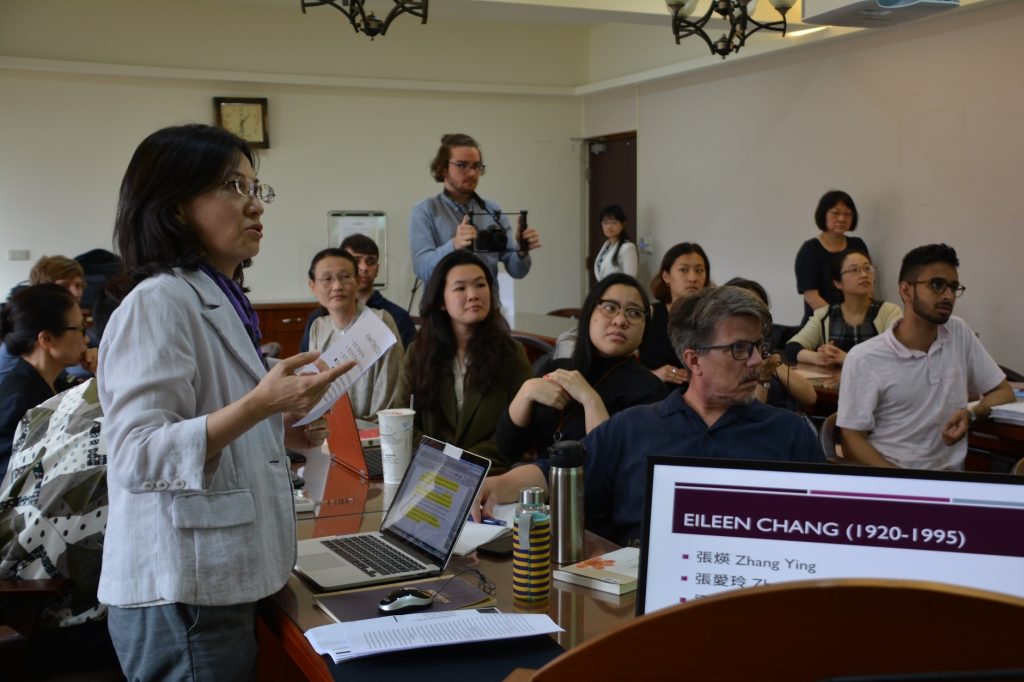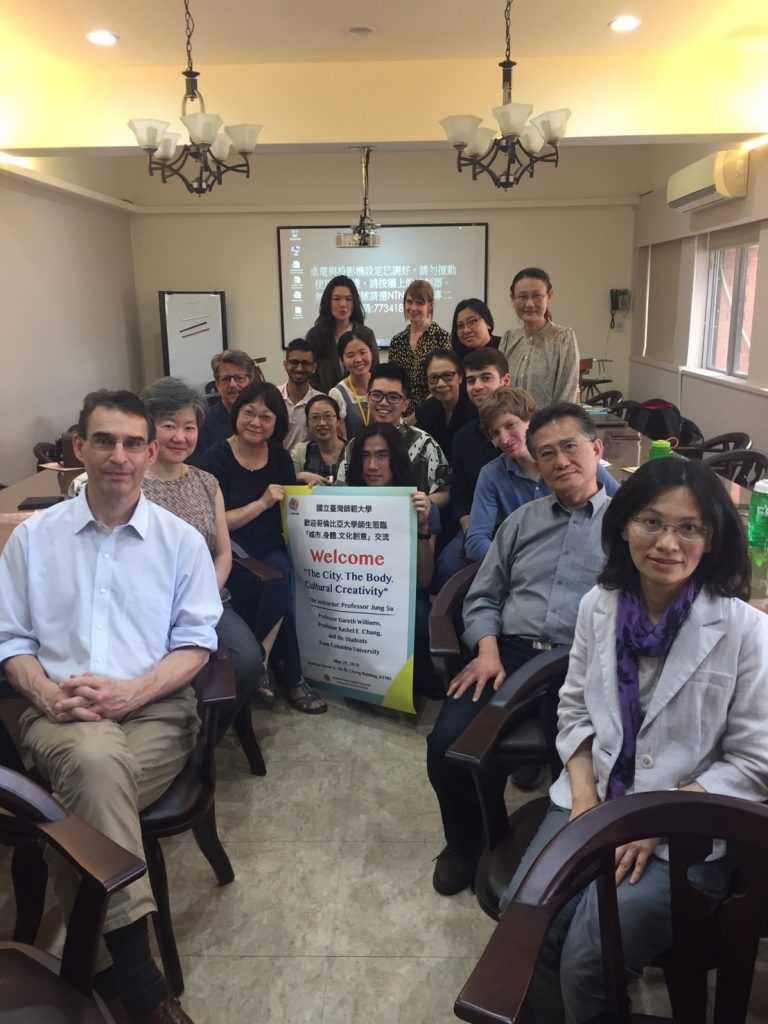This event was held by Prof. Su Jung from the English Department with Professor of Classics and chair of Literature Humanities Gareth Williams and Associate Director University Committee on Asia & the Middle East (UCAME) at Columbia University Rachel E. Chung for a dialog across time and space. Other professors from the English Department including Dean Chern Chiou Lan of the College of Liberal Arts, Prof. Lucy Nicholas from King’s College and phD students Scott Faul and Linda from GITI also attend this event.

Before the course, Prof. Williams and Prof. Su asked the students to read Aeneid and works of Eileen Chang. Prof. Su first briefly talked about the guidelines and background history of Chang’s work, then students shared their thoughts after reading it. UBC professors held a symposium style discussion with the teacher and students of NTNU.
Prof. Su Jung said that he was very grateful to the invitation of the symposium project team at UBC. It’s an opportunity to polish her teaching skill and to expand her knowledge in this multinational, inter-temporal and inter-disciplinary teaching program. She admired the discussion leading skills of the two UBC professors and considered it a valuable experience.
Professor Williams is very grateful of Professor Su for this exchange opportunity. In this lecture, he learned more about modern Chinese writers. Professor Chung discussed the method of holding a symposium with Professor Su. Professor Nicholas of the University of London is particularly interested in the marginal concept against Eileen Chang and Virgil proposed by Professor Su. All three professors are impressed by the class and believe that this is a great event for
A student, Chen thinks that this is a course full of dialectical thinking. Both sides proposed ideas differently and the Chinese and Western literatures are no longer clearly defined. David Grabovsky, a student from UBC believes that it’s inspirational to interpret Greek and Roman literature and modern Chinese literature from different perspectives. Another student, Sairaj Sajjath believes that the tension between love and memory in classical literature and modern literature is his greatest takeaway in the discussion, and he is grateful for the opportunity to attend this course. Another student, Li, believes that the course presents the differences between education of Taiwan and the United States. Professor Nicholas told her after the course that “when reading critics of classic literary criticism, you shouldn’t be stopped by the background and the ancient use of words. Just based on intuition. You express what you think and start a communication with the author.’ This is, to her, is a valuable advice.
